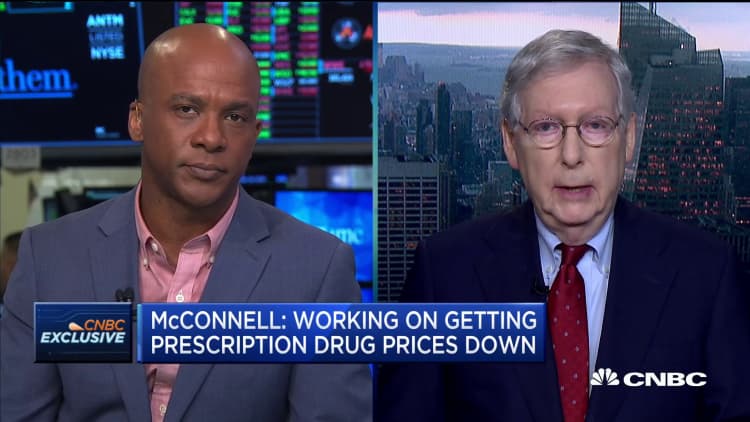Assurances sought by House Democrats on Mexican labor reform in order to ratify President Donald Trump's trade deal with Mexico and Canada this year are a "very tall order," according to Harry Broadman, who served as assistant U.S. trade representative under Bill Clinton.
Several Republican senators took to the chamber's floor Wednesday to push for the passage of the United States-Mexico-Canada Agreement, while Iowa GOP Sen. Chuck Grassley accused the Democratic-held House of having "no sense of urgency" to approve the USMCA, which is one of the GOP's key economic and political goals ahead of the 2020 election.
House Speaker Nancy Pelosi said this month she believed that "every day we are becoming closer" to moving forward on the deal. The sense of urgency from leading GOP figures, including the president, is compounded by the fact that 2020 is an election year, meaning failure to approve the deal by the end of 2019 threatens its passage during this Congress.
Democrats have been negotiating with the Office of the U.S. Trade Representative, seeking assurances that the three nations will be able to enforce labor standards intended to protect U.S. manufacturing jobs. Critics of the USMCA's predecessor, the North Atlantic Free Trade Agreement, said it sapped U.S. jobs in favor of cheap labor outside the U.S.

Broadman, who also was a senior economic advisor to George H.W. Bush, has urged the Mexican government to clarify that it has already committed to labor reform, irrespective of the USMCA, in order to boost its own domestic economic growth.
"I think that would help U.S. legislators understand how committed the Mexicans are to labor reform even if there were no USMCA," he said.
Mexican President Andres Manuel Lopez Obrador recently wrote to Pelosi urging House Democrats to move forward in approving the deal, which was ratified in the Mexican Senate in June but has yet to secure approval in the U.S. and Canada.
Obrador also wrote to House Ways and Means Committee Chairman Rep. Richard Neal, D-Mass., pledging to fully implement labor reforms that aim to boost wages and worker bargaining power in Mexico.
Mexico published labor reform measures on May 1, and Broadman, who was part of the U.S. team that negotiated NAFTA, told CNBC via telephone from Washington that "the U.S. Congress asking to see results before they sign an agreement is a very tall order."
"It may even be unprecedented to ask another country 'well you've committed to the reforms and we've been negotiating the new NAFTA 2.0, but we're not even going to vote on that until you show us, not just the legislation, but we want to see wages rising now, we want to see training programs producing Mexican workers with different skills now,'" he said.
"These things take time, and I think it's a little bit over the top to think that any country could produce those outcomes so quickly."
Broadman suggested that the Mexican government should insert "key performance indicators" into the recently passed labor reform program, with an associated promise to identify and address deficiencies transparently as the reforms take root.
The U.S. sends more goods to Canada than any other country, while Mexico is the second-largest American export market.
—CNBC's Jacob Pramuk contributed to this report.

